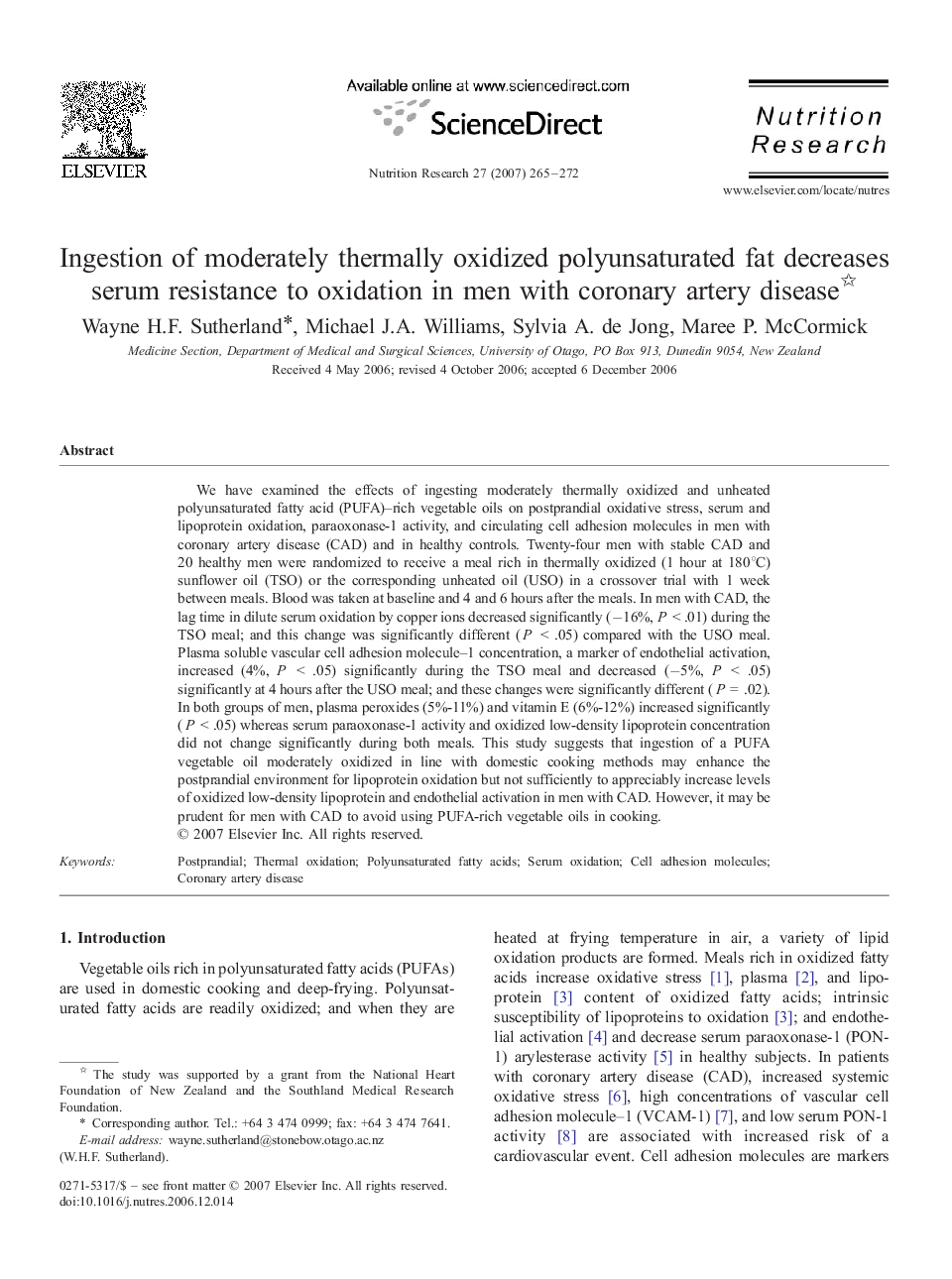| Article ID | Journal | Published Year | Pages | File Type |
|---|---|---|---|---|
| 2809996 | Nutrition Research | 2007 | 8 Pages |
We have examined the effects of ingesting moderately thermally oxidized and unheated polyunsaturated fatty acid (PUFA)–rich vegetable oils on postprandial oxidative stress, serum and lipoprotein oxidation, paraoxonase-1 activity, and circulating cell adhesion molecules in men with coronary artery disease (CAD) and in healthy controls. Twenty-four men with stable CAD and 20 healthy men were randomized to receive a meal rich in thermally oxidized (1 hour at 180°C) sunflower oil (TSO) or the corresponding unheated oil (USO) in a crossover trial with 1 week between meals. Blood was taken at baseline and 4 and 6 hours after the meals. In men with CAD, the lag time in dilute serum oxidation by copper ions decreased significantly (−16%, P < .01) during the TSO meal; and this change was significantly different (P < .05) compared with the USO meal. Plasma soluble vascular cell adhesion molecule–1 concentration, a marker of endothelial activation, increased (4%, P < .05) significantly during the TSO meal and decreased (−5%, P < .05) significantly at 4 hours after the USO meal; and these changes were significantly different (P = .02). In both groups of men, plasma peroxides (5%-11%) and vitamin E (6%-12%) increased significantly (P < .05) whereas serum paraoxonase-1 activity and oxidized low-density lipoprotein concentration did not change significantly during both meals. This study suggests that ingestion of a PUFA vegetable oil moderately oxidized in line with domestic cooking methods may enhance the postprandial environment for lipoprotein oxidation but not sufficiently to appreciably increase levels of oxidized low-density lipoprotein and endothelial activation in men with CAD. However, it may be prudent for men with CAD to avoid using PUFA-rich vegetable oils in cooking.
